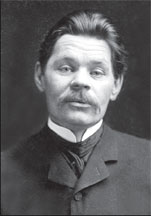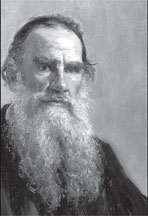The legacy of Russian literature lives on
by R. Liyanage
My intimate knowledge of Russian literature is mainly due to certain
criticism of our follow writers such as Martin Wickremasinghe who had
spent much of his time in studying the history of Russia. The Russian
Revolution which occurred in 1917 based on the Marxist principles of
Economic philosophy is a culmination and continuation of the French
Revolution. But the Russian Revolution was due to the outburst of
grievances of the peasants and workers whose imagination was fired by
the Russian writers.
King Zsar who exploited the peasants had to face a revolution which
later became a communist regime. Lenin the humanist who sympathised with
the common masses was the prime mover of the revolution and he
introduced a new chapter of life to the Russian people who were
oppressed by the capitalist class. The French Revolution was almost like
a rebellion which arose against the State and the revolution continued
under a tribunal and it was a massacre of people who were privileged and
innocent.
 |
 |
 |
| Maxim Gorky |
Fyodor Dostoyevsky |
Leo Tolstoi |
Our insight into pre-revolutionary Russian literature highlights the
suffering of the people and how the petty lords treated the people.
Lenin said that Leo Tolstoi mirrors the Russian Revolution. Dostoyevsky
wrote some major novels such as Brother Karamazov, The Idiot and Crime
and Punishment. Due to his novels against the Russian regime he was
sentenced to death but was pardoned later and was exiled to Siberia.
Even Maxim Gorky published his celebrated novel Mother which had a
veiled attack on the harsh rule of King Zsar. A gun shot pierced one of
his lungs and he had a narrow escape. Gorky enriched the Russian
literature which is admired by critics.
Short stories
Anton Chekhov write short stories which had a great literary value.
European readers admired them along with their own novels. Perhaps
Ronald Hingley who wrote on Chekhov's works and his biography had
greater insights into Russian life and the literature and he more than
any European critics had an intimate knowledge of Russian culture. He
knew much of the ideals and the temperaments of the Russian people.
Leo Tolstoi who discarded the sentimental elements in his later
novels was more a saint than an aristocrat. He wanted to renounce his
wealth and lead a simple life as a peasant by cooking his own food and
chopping firewood. His conduct was envied by his wife and he escaped
from his home and travelled in a train and died of pneumonia at a
station. He was a world renowned author who was disgusted with his life
in his old age. Even Gogols who wrote Dead Souls and Overcoat was
disgusted with life. After writing his second volume of Dead Souls, he
destroyed it and wandered in Europe like a tramp and died there later.
Ivan Turgeniev, the Russian author who wrote and admired Russian
literature lived in Paris leaving his motherland. He was disgusted with
the Russian aristocracy. King Zsar did not want to destroy the life of
Leo Tostoi as he came from a respectable family. However, his books were
banned in all the libraries and the secret police destroyed some of
them. Europeans who viewed the Russian life and culture did not have a
penetrating knowledge as their minds were obsessed with prejudices.
American literature
Jane Austin and Henry James of America were reluctant to depict the
lives of working people and the peasants in their novels.
They were clever at depicting the wealthy snobbish society. For
instance, the old French novelists such as Flaubert and Guy de
Maupassant attacked the middle class in society. But Dickens' approach
to life and art was diametrically opposed to that of other writers as he
depicted the miseries of the lower middle class.
The Russian writers in particular indulged in a variety of form in
the craft of fiction to depict the lives of farmers, middle class people
and the tramps. Due to the spread of scientific and socialist ideas
there is a changed aspect in the landscape and socialist ideas of
Russian literature and the Russian novel is identified as an element of
humanistic movement against western literature.
In western countries, especially England, America and France the
novel became an expression of aristrocratic ideas.
The works of Russian writers encouraged people to rise against
tyranny and oppression and capitalist exploitation.
There were some writers in the Soviet Union who wanted to throw
overboard the ancient culture and to replace it with a new culture. The
new culture which they dreamed of was the proletarian culture. |


